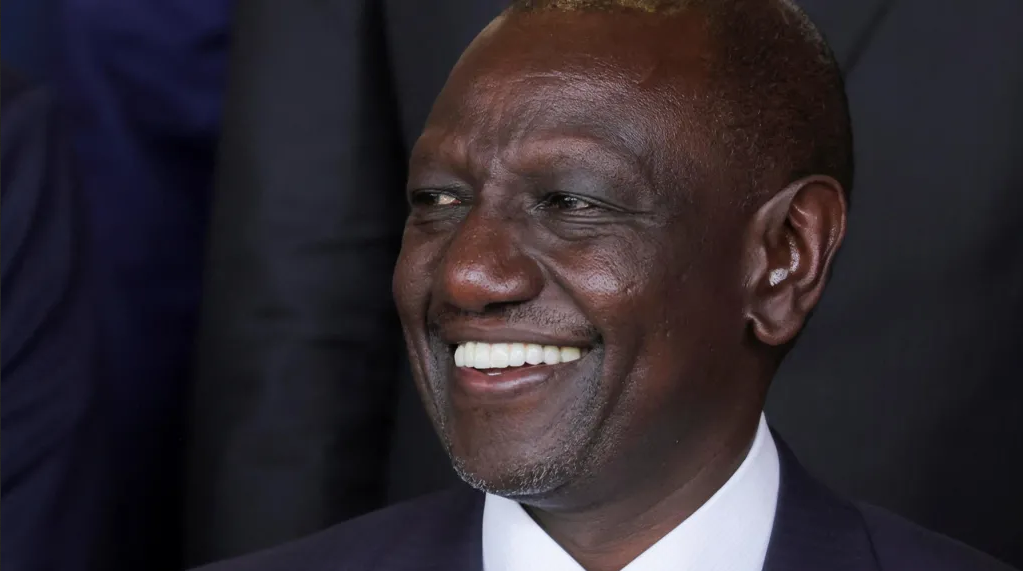BERLIN – Germans are starting to rethink their negative views about Prussia, the state which ruled much of northern Germany for centuries and which has been viewed for decades through the prism of Nazism.
In particular, a book by Australian historian Christopher Clark has stirred a debate about Prussia which Germans have vilified since World War Two for representing the militarism, discipline and blind obedience that helped Hitler rise to power. ‘The Rise and Downfall of Prussia 1600-1946′ challenges the widely accepted negative view of the era in Germany and tries to present a balanced account of the north European territory which grew to be a major 18th and 19th century European power.The book, printed in English and German, has been on the best seller list in German bookshops for several months and even inspired the influential Der Spiegel magazine to run a 15-page cover story last week entitled “Prussia’s true glory”.Clark, from Britain’s Cambridge University, seeks to give a full account of Prussia, including the positive contribution it made to society, without starting from the premise that it was responsible for the rise of Hitler.”It is a very important book which makes an important contribution to the debate,” said German historian Heinrich August Winkler, who believes the book, along with other recent works, has helped produce a more nuanced picture of Prussia.Originally a small territory on a northern marshy plain, its ruler, Frederick II, or Frederick the Great, built up an army of 188 000 highly trained men that transformed his monarchy into a political force.It is increasingly given credit for introducing compulsory education, abolishing serfdom and promoting the arts.Germans’ exposure over the years to Prussia’s cultural wealth, as museums in Berlin have been renovated and reopened after unification, has also played a role, say experts.”Gradually people are experiencing Prussia in a different way,” said Norbert Zimmermann, Vice President of the Prussian Cultural Heritage Foundation.”The cultural treasures people see in Berlin museums, the palaces in Potsdam, help people rethink their more negative views about Prussia,” he added.Germans’ negative views were in part moulded by the history written by the Allies who abolished Prussia in 1947.The writ which expunged it described Prussia as “a bearer of militarism and reaction in Germany”.Because of the Allies’ judgement on it, Prussia “became the very source of the German malaise that had afflicted Europe”, writes Clark, an attitude which has prevailed for decades.Catholics in Baden-Wuerttemberg, Bavaria and the Rhineland still share an antipathy towards Berlin, Prussia’s Protestant capital boasting militaristic symbols such as the Brandenburg Gate.Several events in the last few years have illustrated the enduring nature of the hostility towards Prussia.Moving the capital from Bonn to Berlin after re-unification aroused anxiety among critics that a strong Prussia could re-emerge as a political force.The reburial of the Frederick the Great in his Potsdam palace in 1991 and plans to reconstruct an 18th century Prussian palace in the heart of Berlin are viewed by many as attempts to glorify the state’s past.Nampa-Reuters’The Rise and Downfall of Prussia 1600-1946′ challenges the widely accepted negative view of the era in Germany and tries to present a balanced account of the north European territory which grew to be a major 18th and 19th century European power.The book, printed in English and German, has been on the best seller list in German bookshops for several months and even inspired the influential Der Spiegel magazine to run a 15-page cover story last week entitled “Prussia’s true glory”.Clark, from Britain’s Cambridge University, seeks to give a full account of Prussia, including the positive contribution it made to society, without starting from the premise that it was responsible for the rise of Hitler.”It is a very important book which makes an important contribution to the debate,” said German historian Heinrich August Winkler, who believes the book, along with other recent works, has helped produce a more nuanced picture of Prussia.Originally a small territory on a northern marshy plain, its ruler, Frederick II, or Frederick the Great, built up an army of 188 000 highly trained men that transformed his monarchy into a political force.It is increasingly given credit for introducing compulsory education, abolishing serfdom and promoting the arts.Germans’ exposure over the years to Prussia’s cultural wealth, as museums in Berlin have been renovated and reopened after unification, has also played a role, say experts.”Gradually people are experiencing Prussia in a different way,” said Norbert Zimmermann, Vice President of the Prussian Cultural Heritage Foundation.”The cultural treasures people see in Berlin museums, the palaces in Potsdam, help people rethink their more negative views about Prussia,” he added.Germans’ negative views were in part moulded by the history written by the Allies who abolished Prussia in 1947.The writ which expunged it described Prussia as “a bearer of militarism and reaction in Germany”.Because of the Allies’ judgement on it, Prussia “became the very source of the German malaise that had afflicted Europe”, writes Clark, an attitude which has prevailed for decades.Catholics in Baden-Wuerttemberg, Bavaria and the Rhineland still share an antipathy towards Berlin, Prussia’s Protestant capital boasting militaristic symbols such as the Brandenburg Gate.Several events in the last few years have illustrated the enduring nature of the hostility towards Prussia.Moving the capital from Bonn to Berlin after re-unification aroused anxiety among critics that a strong Prussia could re-emerge as a political force.The reburial of the Frederick the Great in his Potsdam palace in 1991 and plans to reconstruct an 18th century Prussian palace in the heart of Berlin are viewed by many as attempts to glorify the state’s past.Nampa-Reuters
Stay informed with The Namibian – your source for credible journalism. Get in-depth reporting and opinions for
only N$85 a month. Invest in journalism, invest in democracy –
Subscribe Now!










